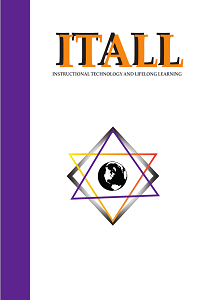Çocuk Edebiyatı ve Anlayış Etiği
The ethics of understanding is a set of values based on the individual's natural curiosity to seek and find the meanings that make life and human beings valuable, to take the ethical responsibility required by the answers they find, and not to seek any interest in these stages. Supporting this set of values starting from early childhood makes significant contributions to the child's affective, social and moral development. In particular, it is clear that quality texts that comply with the basic principles that children's literature should bear will positively affect the development of the ethics of understanding in children. The aim of this study is to explain the relationship between children's literature and the ethics of understanding and to explain the qualities that children's books should have in terms of the ethics of understanding in line with the views of the literature. This study was conducted with a qualitative research method. The data source of the study is five children's books for preschool children. The data were collected by document analysis method and analyzed by descriptive analysis method. At the end of the study, it was seen that qualified children's books have the potential to support the ethics of understanding. The characteristics that books that support the ethics of understanding should have were determined and suggestions were presented to the authors of children's literature.
Anahtar Kelimeler:
Çocuk edebiyatı, Anlayış etiği, Türkçe eğitimi
Children’s Literature and Ethics of Understanding
The ethics of understanding is a set of values based on the individual's natural curiosity to seek and find the meanings that make life and human beings valuable, to take the ethical responsibility required by the answers they find, and not to seek any interest in these stages. Supporting this set of values starting from early childhood makes significant contributions to the child's affective, social and moral development. In particular, it is clear that quality texts that comply with the basic principles that children's literature should bear will positively affect the development of the ethics of understanding in children. The aim of this study is to explain the relationship between children's literature and the ethics of understanding and to explain the qualities that children's books should have in terms of the ethics of understanding in line with the views of the literature. This study was conducted with a qualitative research method. The data source of the study is five children's books for preschool children. The data were collected by document analysis method and analyzed by descriptive analysis method. At the end of the study, it was seen that qualified children's books have the potential to support the ethics of understanding. The characteristics that books that support the ethics of understanding should have were determined and suggestions were presented to the authors of children's literature.
- Başlangıç: 2020
- Yayıncı: Mustafa SARITEPECİ
Sayıdaki Diğer Makaleler
Çocuk Edebiyatı ve Anlayış Etiği
Zeynep ŞAHİN KONAŞ, Hatice YILDIZ DURAK
E-Öğrenmeyi Desteklemek için Yapay Zeka Uygulamalarının Öğrenme Yönetim Sistemlerine Entegrasyonu
STEM ve Erken Cebir: Sınıf Öğretmenlerinin Uygulamalarından Yansımalar
